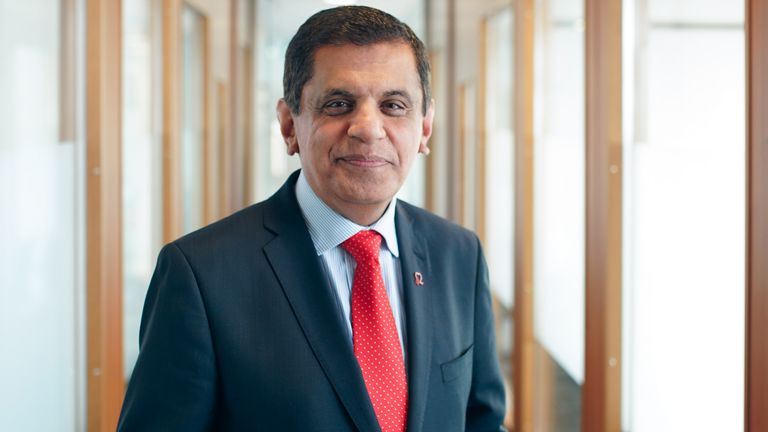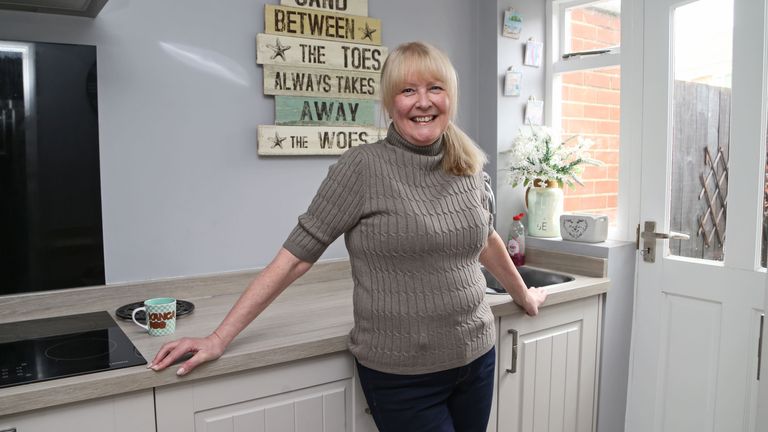
The British Heart Foundation says the number of people with atrial fibrillation has topped 1.5million for the first time – and at least 270,000 more are unaware they have the condition.
The number of people in the UK diagnosed with a heart rhythm condition that puts them at increased risk of having a stroke has topped 1.5 million for the first time.
The British Heart Foundation said its analysis of NHS data on atrial fibrillation – which causes an irregular heartbeat – showed there had been an “astonishing” 50% rise in cases from a total of one million in 2013.
The latest figure means one in 45 people in the UK are now confirmed to have the condition – but the charity fears a further 270,000 people remain undiagnosed and unaware.
Atrial fibrillation is the most common form of abnormal heart rhythm.
Without treatment it can significantly increase the risk of a blood clot forming inside the heart, which in turn means someone is five times more likely to have a fatal or life-changing stroke.
A normal heart rate should be between 60 and 100 beats a minute when a person is resting – but can be “considerably higher” than that in people with the condition, according to the NHS.
It can cause dizziness, shortness of breath and tiredness, along with heart palpitations, but sometimes there are no obvious symptoms.

Sufferers have included Fleetwood Mac star Christine McVie, who died in November last year after having a stroke.
The BHF said the reason for the sharp rise was likely to be a result of better recognition and diagnosis of the condition.
But it said further research was still needed to find new ways of identifying people at risk earlier.
Professor Sir Nilesh Samani, medical director at the BHF, said: “These figures show a quite astonishing rise in the number of people diagnosed with atrial fibrillation.
“Research has helped us understand the links between atrial fibrillation and stroke and that has spurred the efforts we have seen in recent years to identify people with this potentially dangerous heart rhythm.
“What remains troubling is the sheer number of people who are undiagnosed and unaware that they are living with a heightened risk of stroke. Finding people with this hidden threat must remain a priority.”

Debbie Coxon was diagnosed with atrial fibrillation after having a stroke in November 2018.
The 59-year-old, from Blyth, was at home on a FaceTime video call with her 28-year-old daughter Faye when her face began drooping and she had trouble speaking.
Faye raised the alarm as she immediately realised what was happening, and the mother of two was rushed to hospital.
She was treated with thrombolytic – or clot-busting – drugs and eventually returned to her job as a medical secretary after five months at home.

Ms Coxon said: “Until my stroke, I was completely unaware that I had atrial fibrillation. I found it very scary to know that it had caused my stroke and it left me feeling worried that it might cause another.
“It took me a good 12 months before I could say to myself that I’m fine, I’m on all the medication I need for my heart, and that it was time to move on with my life.”
Dr Peter Charlton, from the University of Cambridge, said wearable technology, such as smart watches, could be one way of making it easier to identify people with atrial fibrillation.
Dr Charlton, who is aiming to develop the tech as part of a BHF-funded project, said: “If these devices can be used to reliably detect AF, especially when it is intermittent, then they could be a powerful tool for finding people living with an increased risk of stroke.”
